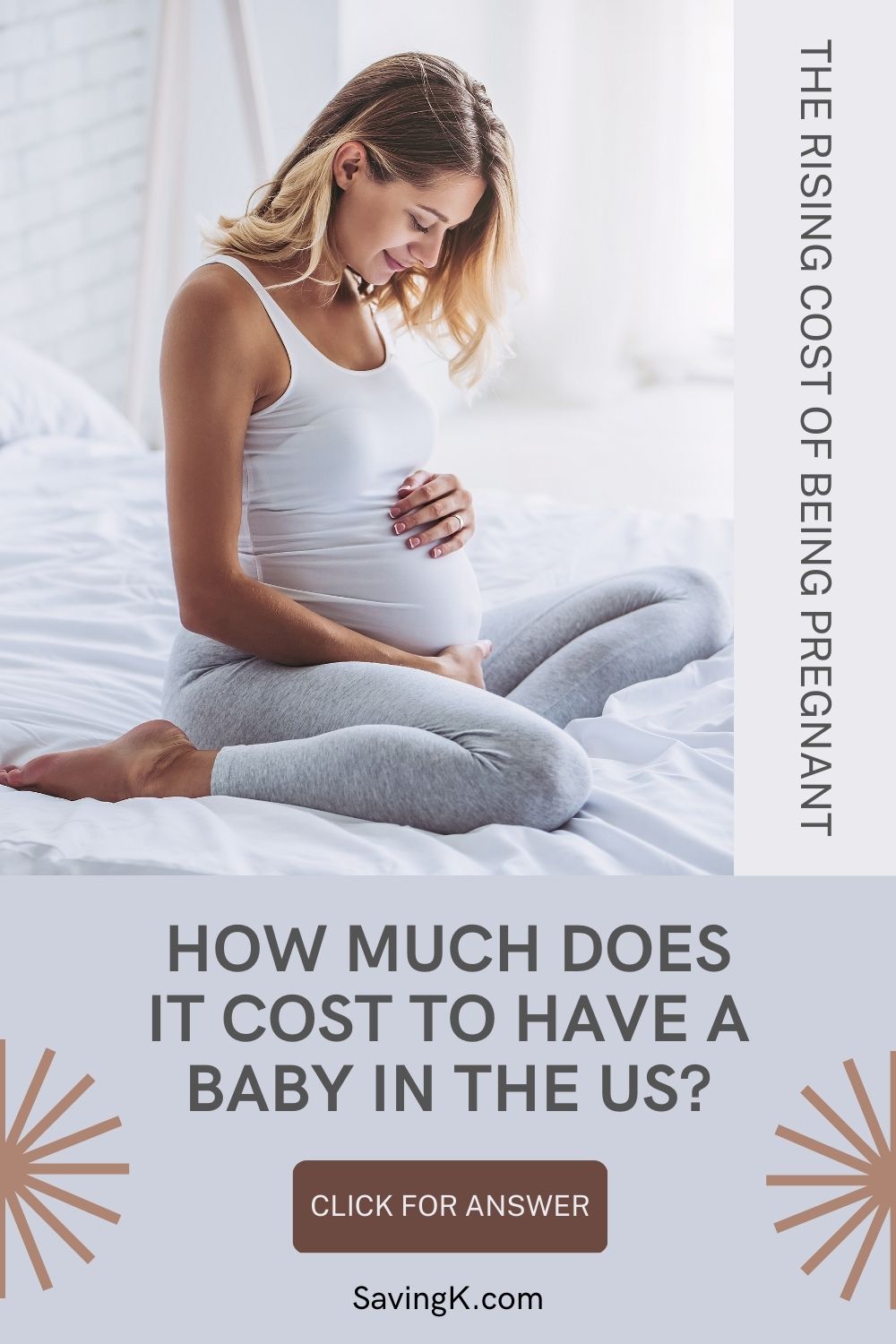
Pregnancy can be a beautiful and exciting time for many expecting mothers. But, as with anything in life, there is a price tag that comes along with it. Even though having a baby should never be considered an expense or an investment, the reality is that the cost of being pregnant and having a baby can add up quickly.
From medical bills to maternity clothes to childcare expenses after birth, there are plenty of things to consider when budgeting for your little bundle of joy. This article will explore some of the most common costs associated with pregnancy and how you can prepare financially for them before welcoming your new addition into the world.
Contents
How Much Does It Cost to Have a Baby in the U.S.?
The cost of having a baby can vary greatly depending on your insurance coverage and the type of delivery you choose. Generally speaking, the average cost for a vaginal birth in the U.S. (without insurance) is $13,000, while a cesarean section typically costs $22,000.

Additionally, it’s essential to consider prenatal care, which can range anywhere from $1,000-$2,000, depending on your specific coverage. This cost typically includes doctor visits, lab tests and ultrasounds.
While it’s true that being covered by insurance when you are pregnant is less expensive than one without, the cost of having a baby with insurance remains a substantial sum. According to the KFF, expectant parents must prepare for out-of-pocket expenses in the realm of $2,854 in addition to what their health plan will cover.
Other expenses that expecting parents need to consider when budgeting for pregnancy include maternity clothes, and other maternity items, such as maternity pillows, and prenatal vitamins.
In recent years, gender reveal parties, babymoon getaways, and maternity photoshoots have become so mainstream that expecting parents may feel pressured to spend on these. And, of course, throwing a baby shower can also cost money, but it may be offset by the gifts you receive for your baby. These costs can add up quickly and should be accounted for as you plan for your baby.
Finally, it’s important to consider childcare costs after the baby’s arrival. Depending on where you live and how much care is needed, these costs can range anywhere from a few hundred dollars per month to over $1,000. So be sure to take into account these costs and budget accordingly.
Factors Contributing to the Increasing Costs of Pregnancy
The cost of having a baby in the United States has been steadily increasing over the years, and a few factors have contributed to this rise. First is the rising cost of medical care, which has been steadily climbing for several decades.
Second, many healthcare plans require expecting parents to pay out-of-pocket for services such as ultrasounds and lab tests. In addition, many women choose elective cesarean sections, which can be costly.
Lastly, social media has significantly contributed to the rising cost of pregnancy by providing indirect pressure on expecting parents to throw gender reveals, pay for expensive pregnancy photoshoots, and even splurge on a babymoon. Even though these are not mandatory costs and can be avoided by money-conscious people, many expecting parents incur significant expenses for these celebrations for fear of missing out.
Ways Expectant Parents Can Save Money During Pregnancy

Here are some tips on how you can save money during pregnancy:
- Research health plans that cover prenatal care, childbirth, and any necessary tests or treatments.
- Set up a flexible spending account to help offset costs.
- Compare doctor’s fees for different types of delivery (e.g., vaginal birth vs cesarean section).
- Shop for the best deals on baby supplies and maternity clothes before making a purchase decision.
- Look for second-hand options when purchasing big-ticket items such as strollers, Owlet alternatives, car seats or cribs.
- Add high-ticket items to your baby registry. You never know who of your friends and relatives will be generous enough to gift you with the high-priced items you need, such as bottle sanitizers or breast pumps.
- Talk with family members or close friends who can assist with childcare after the baby arrives if needed or desired.
- Look into online resources such as frugal parenting blogs and websites that provide tips on saving money during pregnancy.
- Start putting away extra monthly savings in preparation for additional expenses related to childbirth.
- Consider renting equipment, such as a breast pump, instead of buying it outright.
- Do not feel pressured to incur additional costs for gender reveal parties, maternity photoshoots or babymoon trips.
- Consider vlogging or keeping a pregnancy journal if you want to document your pregnancy – these are cheaper alternatives to throwing lavish parties. Here are some baby book inscription ideas to get you started.
Final Thoughts on The Rising Costs of Being Pregnant
Having a baby is an exciting and life-changing experience, but it can also be costly. Therefore, it’s important to take into account all the associated costs when budgeting for your pregnancy. From medical bills to maternity clothes, many expenses expecting parents should consider. However, with some thoughtful planning and research, you can save money and ensure that you’re well-prepared for the arrival of your new baby.
- The Rising Cost of Being Pregnant - January 26, 2023




